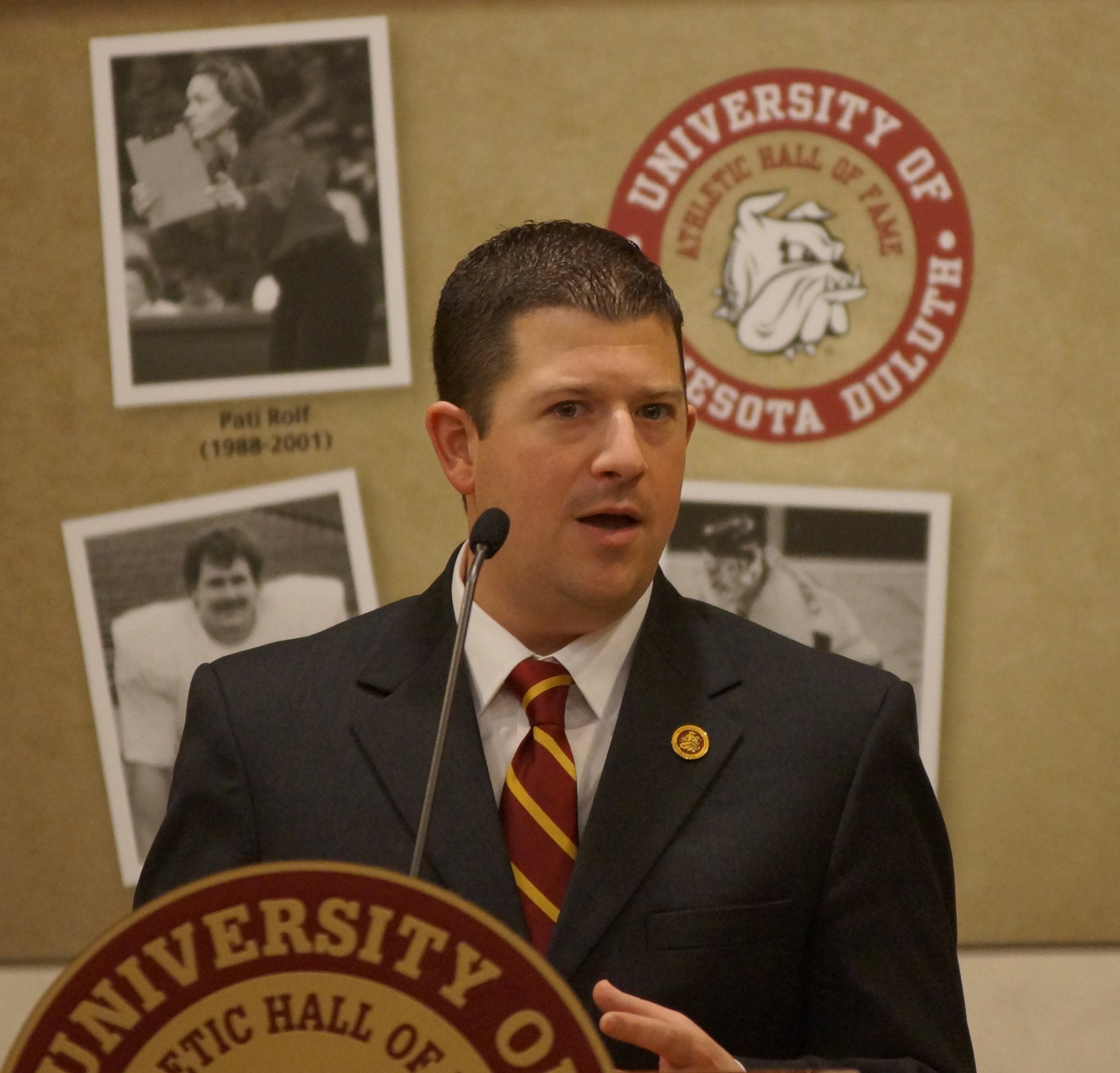UMD athletic director to speak about community service and life lessons in UMD athletics
Written by Tyler Schendel | Archived Nov. 10, 2020
UMD Athletic Director Josh Berlo will highlight community engagement in UMD athletics and the value of sports in society. Photo by Ken Moran.
UMD Athletic Director Josh Berlo will be speaking about UMD athletics at the Hermantown Area Chamber of Commerce on Thursday, Oct. 26 at noon. Berlo said that he does a number of community presentations to local groups and business leaders with a focus on getting to know UMD athletics beyond the wins and losses.
“Our student athletes are impressive young people and it’s exciting to see what they do off the ice, off the court, off the field, off the track,” Berlo said. “Part of that discussion is about the role of sports and really why we started playing sports.”
Now in his fifth season as the athletic director at UMD, Berlo’s “Why we play” presentation will highlight some of the community engagement that UMD athletic teams have done. One example of this is their partnership with the Laura MacArthur Elementary School in which athletes help mentor disadvantaged youth. Berlo said that student athletes are able to use their platform as role models and leaders to make a difference in the community.
“The reason behind [playing sports] wasn’t to win a Stanley Cup or a World Series, it’s about the life lessons that you learn through sporting and why sport helps us be, for the most part, better people,” Berlo said. “You learn about leadership and teamwork and adversity and how to win with class, how to lose with grace, and that’s really I think why we started playing sports.”
Berlo said that he uses opportunities to speak to the community to extend the conversation of sports to get to the core of what sports do for society, including how life lessons learned in athletics can transition to other careers and endeavors. His “Why we play” presentation will place great emphasis on teamwork, success, failure, and adversity.
“A student athlete who has an injury and has to battle through that and spend a year rehabilitating, you learn about perseverance and adversity and those are really valuable skills to have in life,” Berlo said. “Life is going to throw challenges your way and to rely on the lessons of sports can be really valuable. So while we’ve got high end athletes in Division I and Division II here, those life lessons pay dividends for decades.”
Josh Berlo is entering his fifth season as athletic director at UMD in 2017-18. Photo by Mary Ellen Polak
It’s fairly common to see community engagement in sports. Berlo said that he sees that others have also embraced the model of giving back to the community, as almost every NCAA championship and professional sports franchise has some kind of foundation that benefits the local community.
One of Berlo’s favorite community engagement events at UMD is Kicks for Causes by the women’s soccer team. Each home game, one player from the team picks a local charitable organization to benefit, and then a booth is set up at the game to raise money and awareness for that cause. Kicks for Causes is one of many ways UMD athletes give back to the community, as UMD student-athletes and staff totalled over 3,000 volunteer hours during the 2016-17 school year, an all-time high.
“Every opportunity when I’m talking about our athletes, it’s just a great opportunity to talk about what a special, amazing, successful place that UMD is,” Berlo said.
Berlo’s wife is a cancer survivor, so the American Cancer Society is something that he says is very special to him. He serves on the state leadership board and he said that he tries to use athletics as a rallying point to find out what kind of good he can do for the organization. It’s just another part of how Berlo uses lessons learned in athletics to apply them to other aspects of life.
“It’s a fun conversation that extends the discussion of sport beyond the wins and the losses because there really is so much more to it.”


